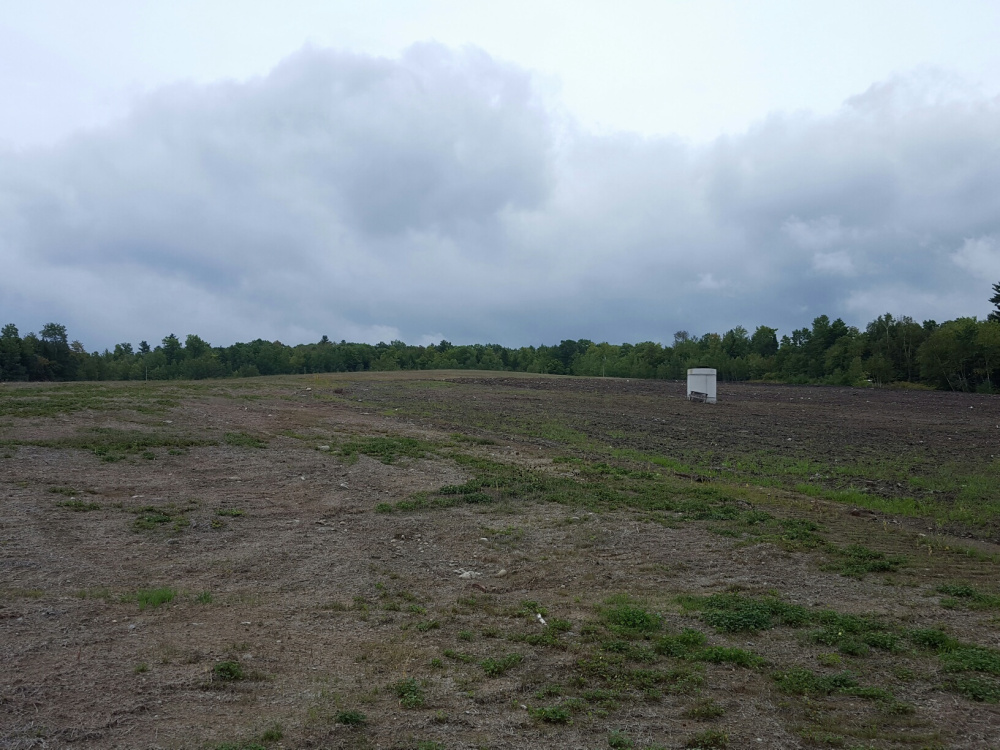AUGUSTA — The state has temporarily stopped pumping leachate from a closed former landfill containing mill sludge off Church Hill Road after unpleasant sewer smells permeated an area on the east side of the city.
Greater Augusta Utility District officials said they got complaints late last week from residents of neighborhoods surrounding its Riggs Brook Pump Station, which is near Sparrow Drive off Riverside Drive, and a “very noticeable odor” could be detected outdoors in that area and around the Route 3 bridge.
Brian Tarbuck, superintendent of the district, said the smell was tracked back to the former Augusta Tissue landfill site off Church Hill Road, where sludge from the former mill operation’s wastewater treatment plant was taken. Before the riverside property was seized by the city for nonpayment of taxes, the former mill site was run as American Tissue and for many years Statler.
The state Department of Environmental Protection monitors the landfill site and has capped it to try to prevent further infiltration by water. However, some water still gets into the landfill, and as a result the DEP periodically pumps the leachate from the site into GAUD’s wastewater system to be treated.
Officials believe the odor that hit the area last week was likely caused by pumping water from the landfill that had sat and stagnated, becoming septic and giving it a hydrogen-sulfide, or rotten egg, type of smell.
Pumping of leachate has been suspended from the site, and state officials are currently working to treat the leachate before pumping it to prevent the odors from spreading again.
David Madore, director of communications, education and outreach for the state Department of Environmental Protection, said the agency is currently testing the leachate to determine the most effective product to treat it with to control the odor.
“An odor control product was obtained this morning and has been added to the on-site pump station,” Madore said in an email. “DEP staff will be assessing odor at and around the facility to evaluate the effectiveness of the product.”
Tim Wade, operations supervisor for the Greater Augusta Utility District, said the odor was very noticeable outside last week and may have also been smelled from inside buildings. He said he could smell the odor as he drove on the Cushnoc Crossing Bridge which carries Route 3 over the Kennebec River.
Tarbuck said the district has “been chasing some odor complaints in that area for a while, and we couldn’t figure out” what was causing the sewer odor. Recently, they noticed the odor last week had arrived at the same time leachate was being pumped from the former mill landfill site. A pipe at the landfill pumps leachate to a district pump station where it is combined with other wastewater and sent to the district’s treatment plant.
“They’ve got a plan going forward. I suspect that will help,” Tarbuck said of the DEP’s plan to quell the odors. “If not, they’ll try something else.”
Tarbuck said the district has been accepting leachate from the site “for decades now,” and it is safe to treat it at the wastewater treatment plant. He said the leachate sits at the landfill site until enough of it accumulates so it needs to be pumped off. He said it is not uncommon for stagnant water to smell really bad.
Previously, the leachate was sent for treatment on a daily basis, but a final cover system has been added to the landfill which, Madore said, significantly reduces the amount of rainwater getting into the now-covered landfill and making it necessary to send leachate for treatment much less frequently. That, in turn, means the leachate sits around and apparently stagnates before it is sent to the plant, likely causing the odor, officials said.
Madore said the DEP hopes the final cover system at the site will eventually reduce the amount of leachate generated at the site so pumping it for treatment will no longer be necessary.
He said the leachate has been and will continue to be tested periodically to make sure it is safe to send into the wastewater system for treatment. City records show the landfill is owned by Augusta Tissue LLC.
Keith Edwards — 621-5647
Twitter: @kedwardskj
Send questions/comments to the editors.




Success. Please wait for the page to reload. If the page does not reload within 5 seconds, please refresh the page.
Enter your email and password to access comments.
Hi, to comment on stories you must . This profile is in addition to your subscription and website login.
Already have a commenting profile? .
Invalid username/password.
Please check your email to confirm and complete your registration.
Only subscribers are eligible to post comments. Please subscribe or login first for digital access. Here’s why.
Use the form below to reset your password. When you've submitted your account email, we will send an email with a reset code.